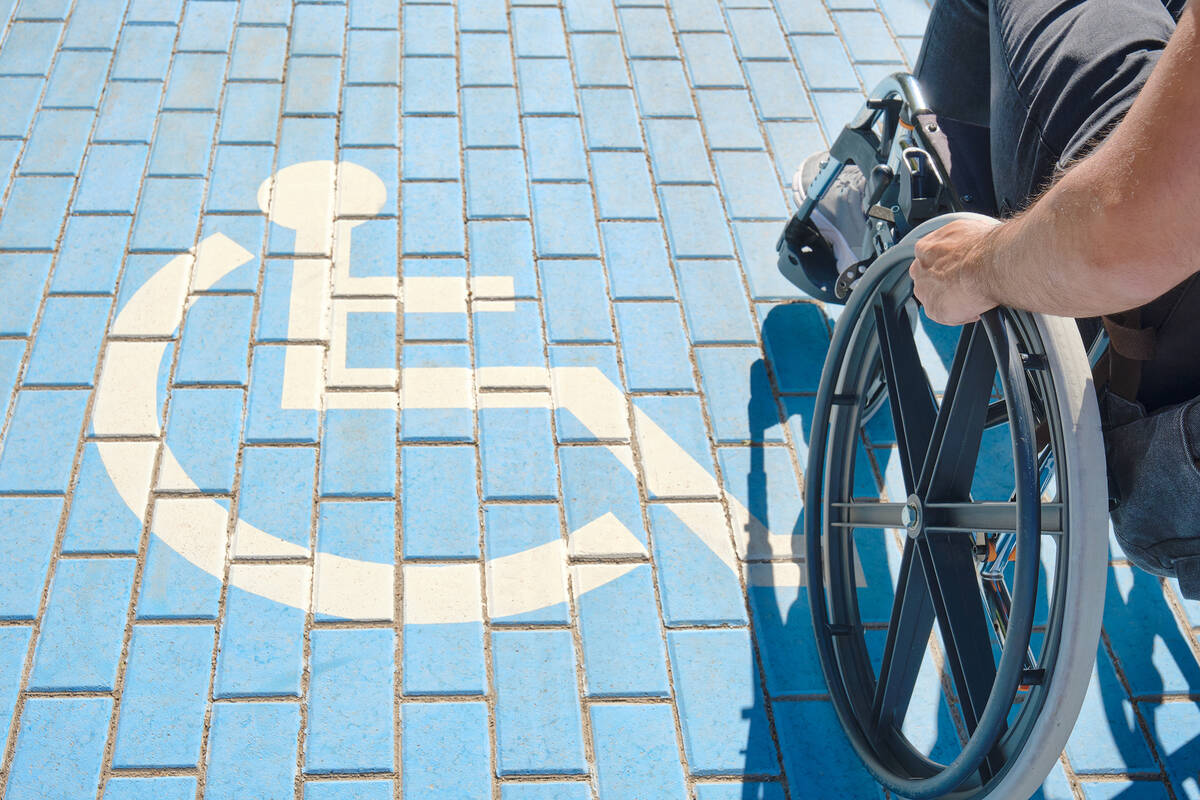RUBEN NAVARRETTE JR.: I was a ‘disability tourist.’ The experience was a blessing that changed my life.
Even as we make our way through the Era of the Woke, Americans are still asleep at the switch when it comes to combating one of the most insidious “isms” of all: ableism.
Welcome to National Developmental Disabilities Awareness Month.
That designation was bestowed in March 1987, when President Ronald Reagan signed a proclamation that made it so. It calls attention to the challenges and opportunities of those with long-term physical and mental impairments.
Decades later, though, we are still in need of greater awareness about the millions of Americans who are physically challenged. Most of us could also use a big helping of patience, understanding, empathy and sensitivity toward those who battle with their bodies every day to complete basic tasks.
I say “physically challenged” deliberately. I don’t like words such as “disabled” or “handicapped,” which imply that an individual is broken or damaged. We all face challenges, and they can be overcome.
According to the Centers for Disease Control and Prevention, as many as 26 percent of American adults — more than 1 in 4 — have some type of disability. Even so, this is a subject we avoid talking about.
I once heard a speaker at a conference observe that disability is a club that most of us — regardless of skin color, economic class or academic pedigree — will probably join at some stage in our lives. We may lose our hearing, our sight, our mobility, our memories. At some point, usually as we age, something is likely to go wrong with our bodies — and they will fail us.
In my case, “something” came earlier than I expected. I was physically challenged for a long time — about 12 years.
My right hip began to slowly deteriorate after a car accident in 1993 and a couple of minor falls in the years afterward. For many years after the accident, I showed no symptoms. I had no pain. And so, even after I started having mobility issues, I put off surgery. That was easy to do given a global pandemic that, for a time, made elective surgeries impossible to get.
Research led me to the right surgeon and the best hospital for me. And three months ago, over Thanksgiving, I finally had the hip replacement that restored my mobility and my quality of life.
I never even thought of myself as disabled until a day in 2019, when my surgeon watched me walk across the examination room and said, “You’re so severely disabled at this point that recovery will take longer than usual.” The words rang in my ears: You’re so severely disabled …
Through the years of constant tug-of-war with my body, limping at first and then getting around with the aid of a cane, I knew that I was but a tourist in the physically challenged world. Someday, I was sure, my life would go back to “normal.”
Yet, I didn’t want to forget the experience. I knew that it was valuable and that it was changing me into a different person. So I took notes, mental and otherwise, on what I was seeing, hearing and living through.
Here are the three most important things I learned.
■ The United States is an ableist country, where those of us who are able-bodied and who can get around as we choose rarely give a thought to fellow citizens who have to negotiate every day with their bodies to discover what is possible, difficult — or impossible.
■ Empathy is the most valuable human attribute — more than compassion, kindness or sympathy. You can’t understand what someone else is going through unless you’ve walked in their shoes and gained an appreciation for their struggle and their strength in meeting it.
■ We need to see — really see — the physically challenged, and not look away. We need to show them respect and help them when we can: Carry a bag, clear a path, hold a door. We need to stop treating them as if they’re broken. We need to recognize that the obstacles we face in life don’t define us. What matters is how we respond to them.
As a disability tourist over a dozen years, I saw clearly where I had been blind.
I was honored to be part of that tribe — even for a while. They are “my people.” And given the courage they exhibit in navigating a world that was not built for them, I could not be more proud to have been in their company.
Ruben Navarrette’s email address is crimscribe@icloud.com. His podcast, “Ruben in the Center,” is available through every podcast app.

















